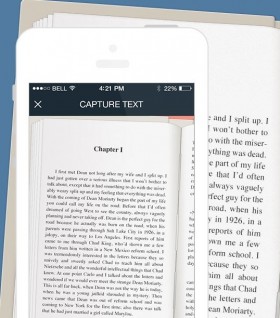Social media has a distinct prejudice toward short attention spans that demand snappy images and snippets of text. It's hard to tell what came first: did our short attention spans demand that social media apps only produce snippets of information — bite-sized pics, quick videos, text — or did all of these social media apps that revolve around data snippets create our short attention spans?
Which came first: the short attention span or the social media app?
These are the kind of deep “philosophical” questions we ask in the 21st century.
Is There More to Life Than Memes and Tweets?
Frankly, for people who are fighting desperately to retain their brain's ability to concentrate for longer than five seconds — people who love reading books, for example — the social media world is an annoying necessity. Very annoying. Or if not very annoying, it's at least exhausting and demoralizing. It makes you feel as if the tech world is reconfiguring your brain into a factory that runs solely on thousands of little loops of pop culture — like assembly lines churning out rows of Campbell's soup cans from a Warhol painting.
But then, in walks Quotle.
The new social media app Quotle is a breath of fresh air in an Internet environment that is prejudiced toward the Snippet Club of instant images, videos, and thinking compressed into Tweets.
How Quotle Works
TechCrunch described it as a cross between OneShot and Instagram, but for book quotes. Let's examine this analogy for a moment:
Instagram: Just in case you've been a cast-away on an island since 2010, Instagram is essentially social media built solely around pictures. You take a picture, share it with your followers, they comment on it.
OneShot: This is a lesser known app, and deserves a little more explanation. Launched in March 2015, OneShot allows you to take screenshots of text on iOS devices and share them with others on Twitter. It allows you to crop the screenshot, highlight relevant text in custom colors, and then it magically figures out the URL for it for you; and then you share it on Twitter, and it's all there: the image, highlighted text, and URL.
Quotle: TechCrunch sums it up well: “…it turns the good old habit of marking down quotes in a notebook into a social experience.” You capture quotes by either manually entering the text into your device or (the cool part) scanning text from a print book (yes, the kind you actually hold in your hand and turn pages) or e-reader like Kindle. The app then processes the text using Optical Character Recognition (OCM). After the text is processed, you can then search online for the book for your citation or manually enter the info. You can put the quote into a number of fonts — eight currently, including Georgia, Folio, Helvetica Neue Light — and then you choose a background color.
How Quotle Harnesses the Best Parts of Instagram UX
Possibly the best part is what happens next: you share your scanned, stylized quote on a screen UX that is very close to Instagram. It looks and feels like Instagram, which makes it a superb, intuitive, and somehow comforting experience because of its familiarity. Like Instagram, you can add a description or comment to your quote, and then share it on Quotle, Facebook, Twitter and Evernote. (Ironically, you can't share it on your Instagram account).
When your quote is shared on your social accounts, it's a lovely poster-quality image.
Quotle also has a nice social media experience. Like Instagram, you can comment, share and follow other users.
Still a Snippet, Yes, But a Snippet with Literary Depth
The fact that a Quotle post can be a more in-depth quote from any book on your shelf or in your e-reader means that you can share something of substance very easily. Of course, you might argue that it's still a part of a Snippet Club, but at least it's a longer, more involved snippet that can come from places offline — such as that really old but interesting book on philosophy that you've had on your book shelf for years. It brings in fresh content to the Internet — fresh flows of water — so that it's not just all of the same recycled digital content circulating in the same stagnant pond.








